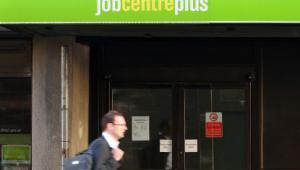From a sugar tax to all schools becoming academies, Budgets are never just about government spending plans and this week’s statement was no exception. At its heart, however, this was a sobering Budget, with lower global growth cited as the reason that forecasts for economic growth have been cut by 0.4 percentage points this year, and 0.3 in each of the next two years. It is particularly concerning that productivity growth has also been revised downwards; strong employment numbers are good but without stronger productivity, it will be hard to manage the “cocktail of risks” around global growth that the chancellor referred to more than once.
In this context, and among all the headline-grabbing announcements, the biggest issues for cities and local government were ongoing commitment to devolution deals, city-based investment in infrastructure, and big questions about where next on business rates.
Devolution continues to be a flagship government policy, with deals and prospective deals announced in England, Wales and Scotland. The new deal for the West of England is particularly important from an economic growth perspective; with productivity much lower than forecast back in November, making the most of areas such as Bristol will be critical to the UK’s future prosperity.
Extending Greater Manchester’s deal and signalling more investment in skills in the Northern Powerhouse are also important markers that the government is taking deals and investment in the fundamentals of city economies seriously, while all the signals suggest that there may be a further deal with the Solent in the summer.
But one of the biggest questions left by this week’s Budget is what happens to local government finances. The chancellor has had to commit to a further £3.5bn of cuts in 2019/20 in unprotected departments in order to balance the books – with local government one of the prime areas likely to feel the pinch.
The new plans to permanently raise the threshold for small business rate relief about business rates announcements will also have a big impact. Just four months ago, the government announced that councils could agree four-year funding deals, that the grant system would end and that business rates would make up the vast majority of council funding – thus creating a stronger incentive for local authorities to make decisions that support economic growth. However, this week’s announcement changes the landscape again with the decision to cut business rates, reducing available funding by around £6.7bn over the five years to 2020.
Although the government say they will compensate the sector, many questions remain unanswered. For example, surely areas with lots of small businesses will be hit much harder than those with bigger businesses? Will local government get the same amount of money in compensation? Where will the money come from – and will it break the very welcome link the government was creating between a local authority’s initiatives to support economic growth and increased local revenues?
Devolution deals have been premised on local government taking some very difficult decisions, making compromises and working together to win the bigger prize of being able to influence spending, decision-making and delivery in their local area. But central government’s side of the bargain was making a long-term commitment to give local government more control over revenues and it needs to keep to that, rather than continually shifting the goalposts.
Overall it’s a budget with many positive signs that the government is taking the importance of city economies seriously. However, there are ongoing questions about how willing it is to commit to a long-term framework, in which local government can take on the additional powers and responsibilities it needs to support national and local economic growth, and improve productivity in the years ahead.



















